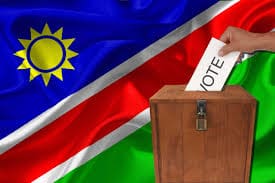Approximately 1.5 million Namibians are set to cast their votes on November 27 in what is anticipated to be the most closely contested elections since the country gained independence in 1990.
Voters will decide on a new president and members of the National Assembly in a political landscape marked by heightened competition.
The ruling South West Africa People’s Organisation (Swapo), which has maintained a stronghold on Namibian politics for over three decades, is expected to win but faces a significant challenge from the Independent Patriots for Change (IPC), a party that emerged after the 2019 elections.
According to the Electoral Commission of Namibia (ECN), 21 political parties will participate in the elections, with 15 fielding presidential candidates.
Namibia employs a majority voting system for presidential elections, requiring candidates to secure over 50 percent of the votes to win, while parliamentary elections utilize a proportional representation system, where the number of seats allocated to each party corresponds to their share of the national vote.
The National Assembly consists of 104 seats, of which 96 are elected, and eight are appointed by the president.
The main contenders for the presidency are Netumbo Nandi-Ndaitwah of Swapo and Panduleni Itula of the IPC.
A veteran politician, Nandi-Ndaitwah is currently Namibia’s vice president and has held several key positions in government and the ruling party.
If elected, she will become Namibia’s first woman president.
Itula, who gained prominence in the last presidential election held in November 2019 by securing 29 percent of the votes as the first opposition candidate to achieve such a result, is optimistic about his chances.
He previously lost to former President Dr. Hage Geingob, who passed away on February 4 this year and was succeeded by Dr. Nangolo Mbumba.
Mbumba has announced that he will not run in the upcoming elections and will support Nandi-Ndaitwah’s candidacy.
Other noteworthy candidates include McHenry Venaani, leader of the Popular Democratic Movement, the largest opposition party in parliament, and Bernadus Swartbooi of the Landless People’s Movement, which advocates for land redistribution.
The 2019 elections marked a decline in Swapo’s electoral dominance, with the party’s presidential vote share dropping from 87 percent in 2014 to 56 percent.
JN/APA


